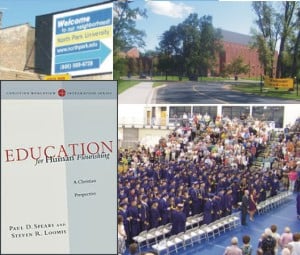A Magnificat kind of Christmas knows that Mary experienced profound release the moment she realized her son would be Messiah. Her release found its way into a marvelous song that extolled the faithfulness of God to his promise.
Once again, here’s the text. This time I ask you to read the whole with an eye to the last two verses. In fact, why not read those last two verses first and then start at the top and read to the bottom?
46And Mary said:
“My soul glorifies the Lord
47and my spirit rejoices in God my Savior,
48for he has been mindful
of the humble state of his servant.
From now on all generations will call me blessed,
49for the Mighty One has done great things for me–
holy is his name.
50His mercy extends to those who fear him,
from generation to generation.
51He has performed mighty deeds with his arm;
he has scattered those who are proud in their inmost thoughts.
52He has brought down rulers from their thrones
but has lifted up the humble.
53He has filled the hungry with good things
but has sent the rich away empty.
54He has helped his servant Israel,
remembering to be merciful
55to Abraham and his descendants forever,
even as he said to our fathers.”
My observation is this: everytime I read this song I am struck that Mary sees the ending of injustice and the establishment of messianic justice as God’s fidelity of his promises to Abraham. Now, frankly, I’ve read Genesis 12 and 15 enough times to know that there is not a whole lot of justice them or injustice theme inherent to those chapters.
Which leads me to this: the promise to Abraham unrolled in the Bible and gathered around it, as a snowball rolling on a perfect day becomes a huge ball, the expectations of God for his people. It called for God to be faithful to his people — for God to be Israel’s God as Israel was God’s people. But, Israel had sinned; Israel needed God’s mercy. Israel needed God to fulfill his promise to restore Israel. Mary grew up with these expectations.
Those expectations involved a society that followed Torah, that worshipped God as it should have in the Temple and according to the calendar, and that lived in such a way that exploitation of the poor ended and usurpation of power by the unruly was nonexistent. In other words, the Abrahamic covenant promises of Genesis 12 involved a society that lived according to God’s will.
Which is my definition for “kingdom of God”: the society in which God’s will was done. This is exactly what Mary extols. God, who promised long ago to Abraham to be faithful to his people, has come full circle: Israel’s exile is over; Israel’s shame has come to an end; and Israel’s glory is about to be seen all over the Land. Israel’s time of oppression is about to end. Injustice will disappear and justice will appear.
In the birth of a baby named Jesus.
A Magnificat Chistmas praises God for his faithfulness to his promise.

